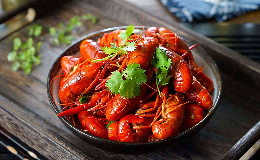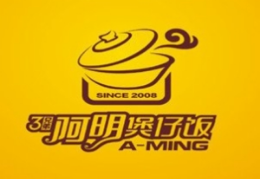柳泉居品牌怎么样 申请店铺
外推网助力柳泉居品牌出海!将品牌入驻外推网,定制柳泉居品牌推广信息,可以显著提高柳泉居产品曝光,简直是跨境电商爆单神器!目前仅需1000元/年哦~

刘伶不比渴泪如,豪饮堆求酒满壶,去去且寻谋一醉,称西道有柳泉居”。这是旧时张笑成的《北京风俗杂咏续编》中一首题为“柳泉居”的竹枝词。
柳泉居饭庄是一家经营地道京味菜肴的中华老字号,始建于明隆庆年间(约1568年),拥有400多年的历史。柳泉居原址在护国寺西口路东,是一家经营黄酒的酒馆。因当时小店的院内有一棵硕大的柳树,树下有一口甜冽清澈的泉眼井,用这口井的水酿出的酒味道醇香无比,因此享誉京都。黄酒馆起初本无店名,因一个偶然的事件,得名人题字便列入经传。
相传在明代,嘉靖皇帝十分宠信奸臣严嵩,说:世上没有杀严嵩的刀,斩他的剑。到穆宗继位后,决心要铲除奸臣,杀死严嵩,无奈先皇有言在先,只得罢免了严嵩的官职,给了他一只银饭碗,让他苟且活着。北京人都恨严嵩,在他被罢官后一直无人接济他,于是严嵩便开始沿街乞讨。一天,他又渴又饿,走到一家黄酒馆前再也走不动了。这家黄酒馆的掌柜是个山东人,经营自酿的黄酒十分地道。严嵩闻到酒香,便央求掌柜的赏他酒喝。掌柜的一眼便看出手捧银碗的严嵩,早就听说严嵩写得一手好字,便取来纸砚笔墨说道:赏酒可以,但你要为我这小店题几个字。严嵩稍加思索便题写了“柳泉居”三个字。这以后不久严嵩便饿死街头,“柳泉居”三个字竟成了严嵩的绝笔,而这家小店也因此闻名京城。
在清代柳泉居连同三合居、仙露居而一并被称为“京城名三居”。随着历史的变迁,百年间“京城三居”到1935年仅存柳泉居一家。伪中央政府1940年南迁后黄酒业衰,柳泉居渐改为专营北京风味菜肴餐馆。1949年店址迁至新街口南大街,北京解放后该店曾易名“平安食堂”、“永进食堂”。1978年恢复了“柳泉居”字号,著名书法家贾松阳先生为柳泉居题写了牌匾。老舍先生的力作《四世同堂》、《正红旗下》,均以此馆做为素材和背景。老舍先生的夫人胡絜青女士在“柳泉居”字号复出后,于1980年2月14号为人民日报撰写的介绍柳泉居的文章中写道:“万没想到,在打倒四人帮后,看到久已湮没的‘柳泉居’老酒馆重新开起张来,实在值得我向它致喜致贺”。著名书法家刘炳森也曾为柳泉居题写牌匾。
1984年,柳泉居重整“门脸”,经营面积由1982年的225平方米增至450平方米。一楼经营大众食品,可同时接待180人就餐;二楼设三间雅间和一大厅,承接聚餐宴会。溥杰先生题写的“即寿而康”、“琼楼胜境”和胡絜青女士题写的匾额使其熠熠生辉。八九十年代,柳泉居的老经理杨兴儒身先士卒勤恳敬业,从厨40余年的特级技师王德福及其徒弟特级技师张铁元领灶主厨,带领干部员工,以其风味特色菜点,周到礼貌服务,为企业带来了稳定的经济效益。2001年,在经理屈德森的带领下柳泉居重新进行装修改造,就餐环境得到了改善,一楼大厅经改修后变得更人性化。重张之际请来漫画大师李滨声,特作“民俗四画”致喜。大酒缸、醉八仙、旧京喜堂、寿堂等。有人士在“醉八仙”图上写“顶针儿”句:京城柳泉黄,黄酒醉人香;香惹八仙醉,醉倒神四双。二楼由原来的三个雅间改造成“聚贤厅”、“福寿厅”、“醉仙厅”、“和禧厅”、“溢香厅”、“柳音厅”六个雅间。改造后的柳泉居不仅在形象上焕然一新,还在菜肴的结构上重新进行了调整。新添了部分菜品,如咸蛋黄炒雪蟹、万福肉、葱烧辽参、炸篷虾段、炒鳝鱼糊、扒白菜等,并重新恢复了黄酒生意,有特制“柳泉黄”、圆坛绍兴老酒、花雕、十年陈酿、女儿红、状元酒。与黄酒配套的酒菜有醉蟹、酥鱼、京豆酱、茴香豆、水晶肉、芥末墩儿等。柳泉居经过几百年的发展,成为经营北京风味菜肴的特色饭庄,不少社会名流常常光顾。
2009年,柳泉居的京菜制作技艺被认定为北京市非物质文化遗产。目前,柳泉居饭庄因地铁四号线施工停业。
Liu Ling is no more thirsty than a tearful man. He drinks a lot and asks for a pot full of wine. He goes to seek a drink and says that there is Liu quanju in the west road. This is a bamboo branch poem named "liuquanju" in the sequel to Beijing Customs by Zhang Xiaocheng. Liuquanju restaurant is a time-honored Chinese restaurant that deals with authentic Beijing dishes. It was founded in 1568, the year of Longqing in the Ming Dynasty. It has a history of more than 400 years. Liuquanju, originally located in the east of Xikou Road, huguosi, is a tavern that deals with rice wine. At that time, there was a huge willow tree in the yard of Xiaodian, and there was a sweet and clear spring well under the tree. The wine brewed from the water of this well tasted mellow, so it was famous in Kyoto. At first, the yellow wine restaurant had no store name. Due to an accident, the inscription of the famous person was included in the classics. According to legend, in the Ming Dynasty, Emperor Jiajing was very fond of Yan Song, the treacherous official. He said that there was no sword to kill Yan Song and cut his sword. After muzong succeeded, he was determined to eliminate the treacherous officials and kill Yan Song. However, the emperor had no choice but to dismiss Yan Song from his official position and give him a silver job to live. Beijing people hate Yan Song. After he was dismissed, no one helped him. So Yan Song began to beg along the street. One day, he was thirsty and hungry. He couldn't walk to a rice wine restaurant any more. The shopkeeper of this yellow wine shop is a Shandong person, and the yellow wine produced by himself is very authentic. Yan Song smelled the fragrance of the wine and begged the shopkeeper to reward him for drinking. The shopkeeper saw Yan Song holding a silver bowl at a glance. He had heard that Yan Song had a good hand in writing, so he took the ink and paper and said, "wine appreciation is OK, but you need to write a few words for my shop.". Yan Song wrote "Liu quanju" with a little thought. Soon after that, Yan Song starved to death on the street. The words "Liu quanju" became Yan Song's last word, and this shop is also famous in the capital. In the Qing Dynasty, liuquanju, together with Sanhe and Xianlu, was called "three famous residences in the capital". With the change of history, there was only one liuquanju in the hundred years from "three residences in Beijing" to 1935. After the puppet central government moved to the south in 1940, the rice wine industry declined, and liuquanju gradually changed to a restaurant specializing in Beijing cuisine. In 1949, the store was moved to the South Street of Xinjiekou. After the liberation of Beijing, it was renamed "safe canteen" and "Yongjin canteen". In 1978, the name of "liuquanju" was restored. Mr. Jia Songyang, a famous calligrapher, wrote a plaque for liuquanju. Mr. Lao She's masterpieces "four generations together" and "under the banner of Zhenghong" all take this museum as the material and background. Mr. Lao She's wife, Ms. Hu Yunqing, wrote in an article about Liu quanju written for people's daily on February 14, 1980, after the return of the "Liu quanju" brand name: "I never thought that after the fall of the gang of four, I would like to congratulate the long forgotten" Liu quanju "old wine shop on its reopening.". Liu Bingsen, a famous calligrapher, once wrote a plaque for Liu quanju. In 1984, liuquanju reorganized its "front door" and its business area increased from 225 square meters in 1982 to 450 square meters. On the first floor, there are public food, which can receive 180 people at the same time; on the second floor, there are three elegant rooms and a hall to undertake the dinner party. The plaques inscribed by Mr. PuJie, "i.e. longevity and health", "Qionglou Shengjing" and Ms. Hu Yunqing make it shining. In the 1980s and 1990s, Yang Xingru, the old manager of liuquanju, took the lead in his hard work. Wang Defu, a special technician of more than 40 years, and Zhang Tieyuan, a special technician of his apprentice, led the chef of the kitchen, led the cadres and employees, served the dishes with special flavor and courteous service, bringing stable economic benefits to the enterprise. In 2001, Liu quanju was renovated under the leadership of Qu Desen, the manager. The dining environment was improved and the hall on the first floor became more humanized after renovation. At the time of re opening, Li Binsheng, a master of cartoon, was invited to make "four folk paintings" to celebrate. Big wine vat, drunk eight immortals, old Beijing happy hall, longevity hall, etc. Some people wrote the sentence "thimble" on the picture of "Eight Immortals drunk": the Yellow willow spring in the capital, the intoxicating fragrance of yellow wine, the intoxicating fragrance of eight immortals, the intoxicating four pairs of gods. On the second floor, the original three elegant rooms were transformed into six elegant rooms, namely "Juxian hall", "Fushou hall", "Zuixian hall", "Hexi hall", "Yixiang hall" and "Liuyin hall". After transformation, liuquanju not only has a new image, but also readjusts the structure of dishes. Some new dishes have been added, such as fried snow crab with salted egg yolk, Wanfu meat, braised sea cucumber with scallion, fried shrimp section with awning, fried eel paste, braised cabbage, etc., and the yellow wine business has been resumed. There are special "liuquanhuang", round Shaoxing old wine, flower carving, ten-year aging wine, daughter red and champion wine. With the yellow wine matching wine and vegetables have drunk crab, crisp fish, Beijing bean paste, fennel beans, crystal meat, mustard pier, etc. After hundreds of years of development, liuquanju has become a characteristic restaurant for Beijing cuisine, which is frequented by many celebrities. In 2009, Liu quanju's Beijing cuisine production technology was recognized as the intangible cultural heritage of Beijing. At present, liuquanju restaurant is closed due to the construction of Metro Line 4.
本文链接: https://brand.waitui.com/654c0ada1.html 联系电话:请联系客服添加 联系邮箱:请联系客服添加


















 浙公网安备 33011802001999号
浙公网安备 33011802001999号
